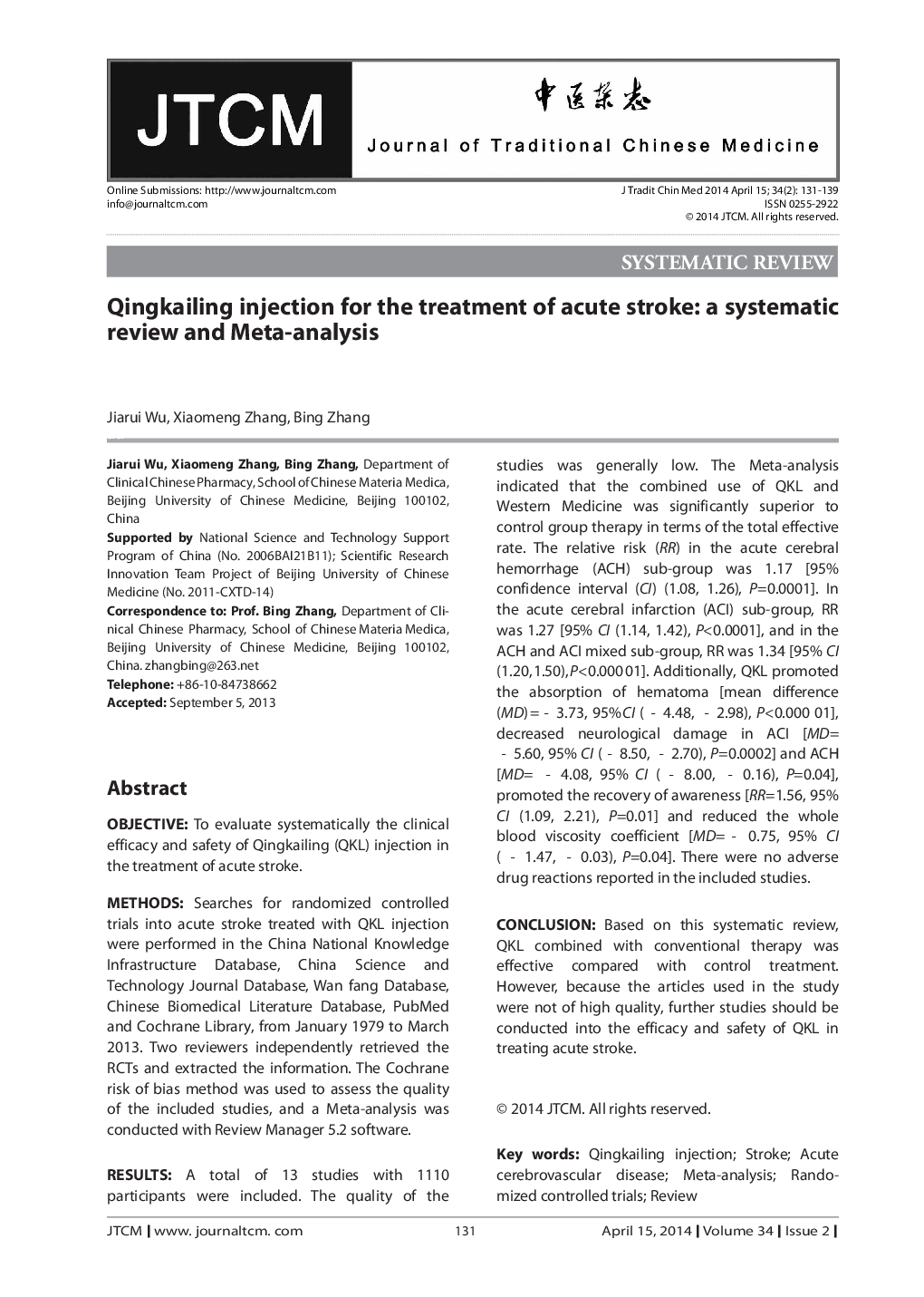| Article ID | Journal | Published Year | Pages | File Type |
|---|---|---|---|---|
| 4201157 | Journal of Traditional Chinese Medicine | 2014 | 9 Pages |
ObjectiveTo evaluate systematically the clinical efficacy and safety of Qingkailing (QKL) injection in the treatment of acute stroke.MethodsSearches for randomized controlled trials into acute stroke treated with QKL injection were performed in the China National Knowledge Infrastructure Database, China Science and Technology Journal Database, Wan fang Database, Chinese Biomedical Literature Database, PubMed and Cochrane Library, from January 1979 to March 2013. Two reviewers independently retrieved the RCTs and extracted the information. The Cochrane risk of bias method was used to assess the quality of the included studies, and a Meta-analysis was conducted with Review Manager 5.2 software.ResultsA total of 13 studies with 1110 participants were included. The quality of the studies was generally low. The Meta-analysis indicated that the combined use of QKL and Western Medicine was significantly superior to control group therapy in terms of the total effective rate. The relative risk (RR) in the acute cerebral hemorrhage (ACH) sub-group was 1.17 [95% confidence interval (CI) (1.08, 1.26), P=0.0001]. In the acute cerebral infarction (ACI) sub-group, RR was 1.27 [95% CI (1.14, 1.42), P<0.0001], and in the ACH and ACI mixed sub-group, RR was 1.34 [95% CI (1.20, 1.50), P<0.00001]. Additionally, QKL promoted the absorption of hematoma [mean difference (MD)= − 3.73, 95% CI (− 4.48, − 2.98), P<0.000 01], decreased neurological damage in ACI [MD= − 5.60, 95% CI (− 8.50, − 2.70), P=0.0002] and ACH [MD= − 4.08, 95% CI (− 8.00, − 0.16), P=0.04], promoted the recovery of awareness [RR=1.56, 95% CI (1.09, 2.21), P=0.01] and reduced the whole blood viscosity coefficient [MD= − 0.75, 95% CI (− 1.47, − 0.03), P=0.04]. There were no adverse drug reactions reported in the included studies.ConclusionBased on this systematic review, QKL combined with conventional therapy was effective compared with control treatment. However, because the articles used in the study were not of high quality, further studies should be conducted into the efficacy and safety of QKL in treating acute stroke.
